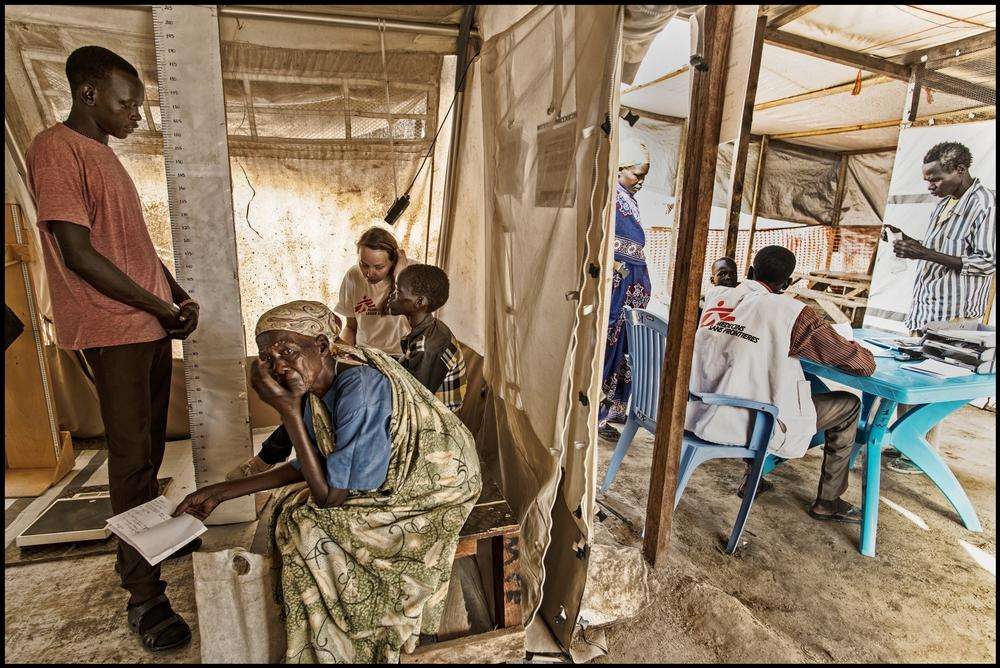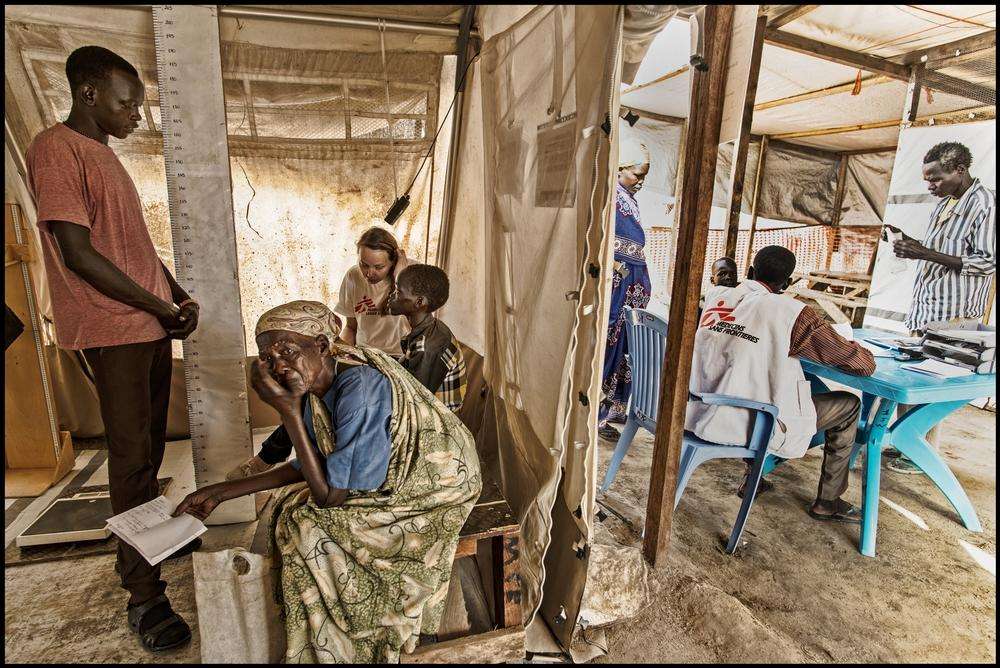Tens of thousands of people are cut off from aid and medical care as fighting intensifies in South Sudan's Upper Nile state, the international medical humanitarian organization Doctors Without Borders/Médecins Sans Frontières (MSF) warned today, calling on all parties to the conflict to allow unrestricted access to the state capital and surrounding areas.
The state capital, Malakal, has emptied as a result of continued fighting, and aid organizations are finding it increasingly difficult to access people in need. Over the past six weeks, MSF has made only a single delivery of medical and food supplies to its health center in Wau Shilluk, on the outskirts of Malakal. There are 77 children with severe acute malnutrition in MSF's outpatient therapeutic feeding program there, but there is currently no way to resupply them with essential ready-to-use therapeutic food.
"The continuing violence in South Sudan is forcing ordinary people to live in inhumane conditions," said William Robertson, MSF program manager for South Sudan. "People are being exposed to continual violence, increased displacement, fear of attacks, disease outbreaks, and the risk of starvation."
Countless acts of violence have taken place against civilians in Upper Nile State in the current conflict. On July 19 and 20, for example, MSF's hospital in Malakal received 36 wounded civilians, including 16 women and five children, who had been traveling in a truck when they were attacked by an armed group. Some had multiple blast injuries caused by grenades and others had gunshot wounds. Five people required emergency surgery.
Many people have fled from Malakal to a nearby United Nations protection of civilians site. However, the site is not a place of safety; MSF treated nine people wounded in a shooting attack directly targeted against the site in early July.
Other people have fled Malakal for the town of Melut, to the north. MSF has been forced to suspend its medical activities there twice in the past six weeks, leaving 20,000 displaced people in the Denthoma 1 camp without medical care.
Others have fled Malakal for the far bank of the White Nile, where there is a lack of basic amenities including food, clean water, and medicine.
"MSF is deeply concerned about the continued denial of access for aid organizations to conflict areas and other remote areas of South Sudan, which is leaving people without the humanitarian assistance they urgently need," Robertson said. "Our sole agenda is to provide assistance to those in need, regardless of their political affiliation, race, ethnicity or the area they are living in."





